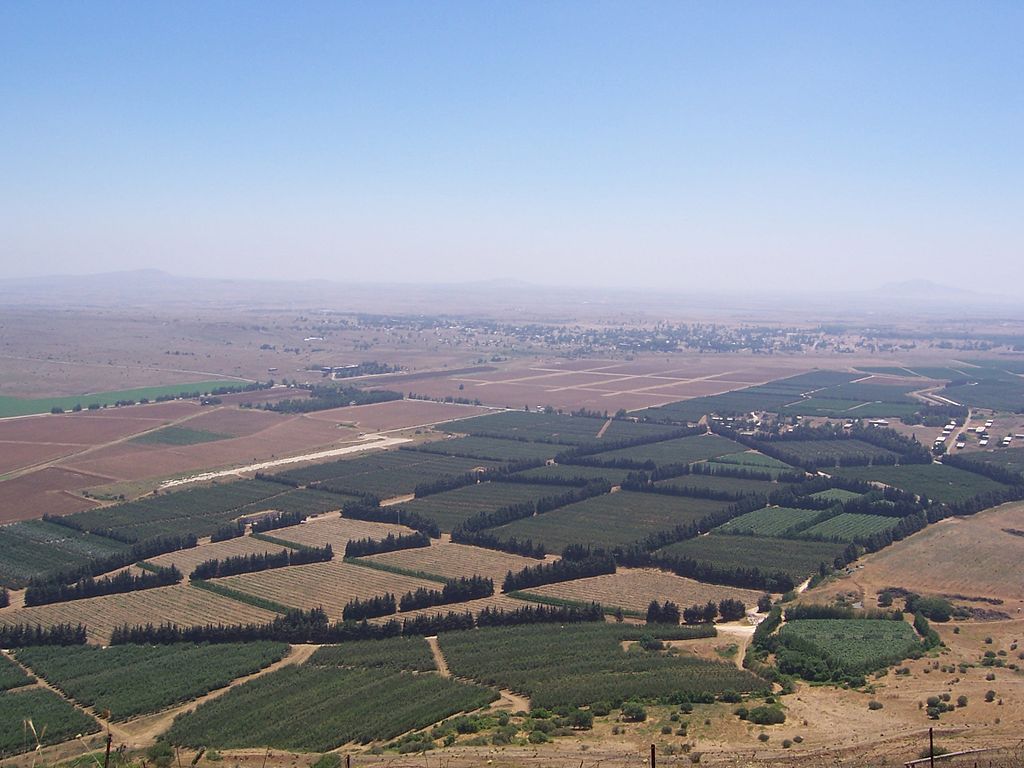The Israeli ambassador to the United Nations, Gilad Erdan, has urged the UN Security Council to deal with Iran’s flagrant violations of a disengagement agreement that resulted in the creation of a buffer zone along Israel’s border with Syria.
The buffer zone, located on the Golan Heights, is 80 kilometres long and 0.5 to 10 kilometres wide. It was set up in 1974, shortly after the end of the Yom Kippur War. Within its boundary of 235 kilometers is an Area of Separation where neither Israeli nor Syrian troops are permitted to operate, as well as Areas of Limitation, where each side can station a limited number of soldiers and weaponry.
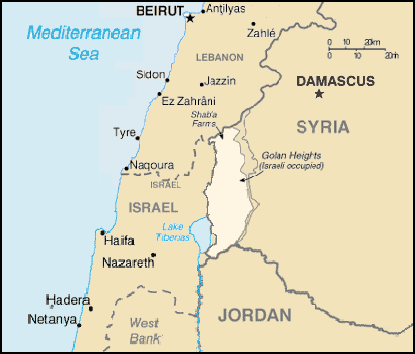
For decades, the buffer zone brought calm to a once-volatile border. But with the outbreak of the civil war in Syria in 2011, the status quo crumbled as Syria’s army clashed with Syrian rebels and as Iran and Hezbollah intervened to prop up Syrian President Bashar al-Assad’s regime.
Iran viewed the war as a golden opportunity to establish a new front against Israel, its chief enemy, on Syria’s side of the Golan.
The Syrian government knowingly permitted Iranian and Hezbollah forces to entrench themselves there. This prompted Israel to launch what would be hundreds of air strikes targeting Iranian and Syrian sites in Syria and Hezbollah weapons convoys heading into Lebanon from Syrian territory.
Erdan raised this issue in a letter to three top-ranking officials on November 24: United Nations Secretary-General Antonio Guterres, Security Council President Inga Rhonda King, and the deputy commander of the United Nations Disengagement Observer Force, Brigadier-General Maureen O’Brien.
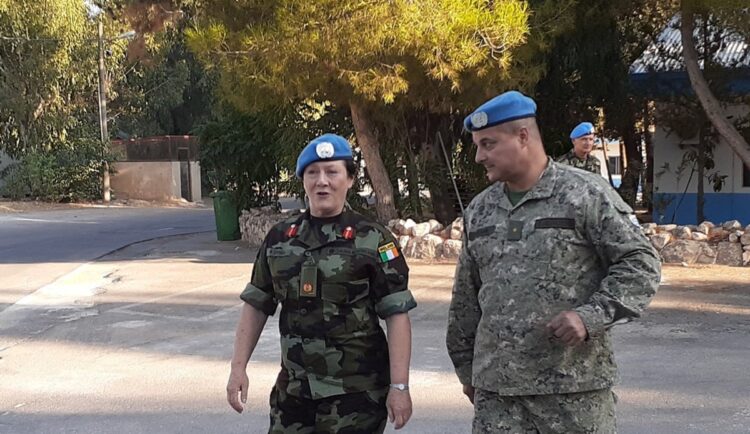
Established in 1974, the force is mandated to keep the peace along the Israeli-Syrian border and inside parts of the buffer zone.
In his letter, Erdan cited examples of Iranian and Syrian violations of the disengagement agreement, which was hammered out by the then U.S. secretary of state, Henry Kissinger, in a flurry of shuttle diplomacy.
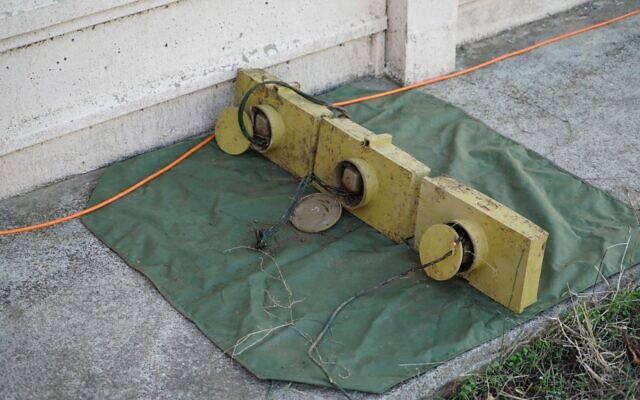
According to Erdan, Iran’s Quds Force, a branch of the Islamic Revolutionary Guard Corps, instructed Syrian nationals to plant improvised explosive devices in the buffer zone in August and again earlier this month.
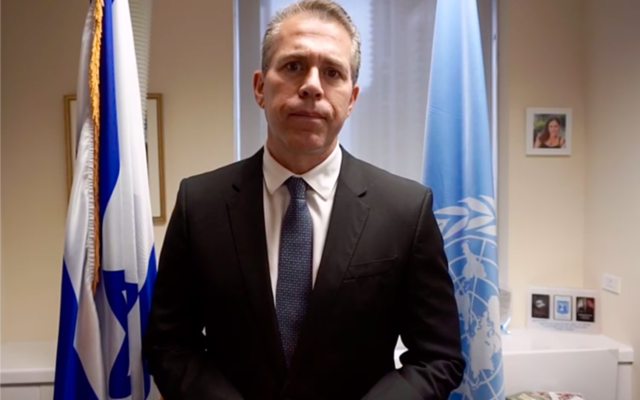
The explosives were designed to kill Israeli soldiers who conduct routine patrols along the border and in the Areas of Limitation. Responding to these intrusions, the Israeli army killed four armed marauders in August and the Israeli Air Force launched a series of bombing raids in November.
“These incidents, conducted by Iran’s proxies in Syria, prove once again that Syrian territory … is being abused by hostile elements,” Erdan wrote. “The Syrian regime continues to allow Iran and its proxies to use its territory, including military facilities and infrastructure, to entrench its presence in Syria and undermine efforts to maintain stability in the region. These activities constitute a serious and blatant violation of the disengagement agreement, carry the potential for serious escalation, and pose a risk not only to the local civilian population, but also to the UN personnel on the ground.”
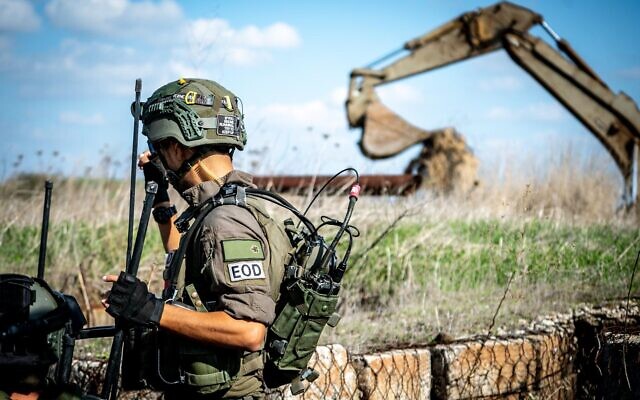
Erdan said he expected a “thorough investigation” of these incidents by the United Nations Disengagement Observer Force, a Security Council condemnation of these “dangerous acts,” a “total rollback of Iran and its proxies from Syria, and the removal of Iran’s military infrastructure from Syrian territory.”
To drive home these demands, Israel dropped leaflets in the Syrian sector of the Golan on November 25 warning Syria to halt cooperation with Iran and Hezbollah.
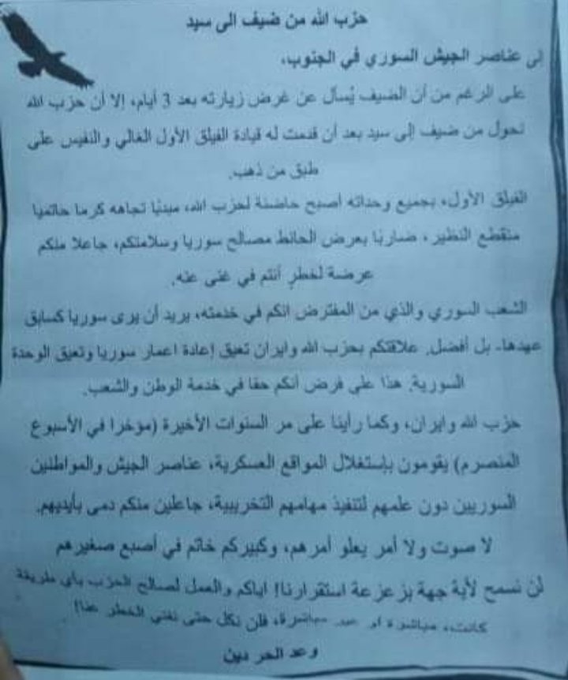
“We will not allow anyone to upset stability here,” the leaflet read. “Hezbollah and Iran, as we have seen in recent years, are using (Syrian) military sites, military personnel and Syrian civilians unwittingly and carrying out their terrorist missions against the State of Israel.”
The leaflet warned that Israel would, “as needed,” respond militarily to such acts of aggression.
Three days before the leaflets were dropped, Iran made threatening noises.
After one of the latest Israeli air strikes in Syria, which reportedly killed 19 fighters from Iraq and Afghanistan aligned with Iran, Iran threatened Israel and denied it is establishing permanent bases in Syria.
Iranian Foreign Ministry spokesman Said Khatibzadeh said “the Zionist regime is well aware that the era of hit-and-run (Israeli air attacks) is over.” He added that Iran’s role in Syria is “advisory” and that “if anyone disrupts this advisory presence, our response will be a crushing one.”
Iran has yet to retaliate, but an Iranian strike in the near future is almost a certainty if Israel continues to strike Iranian and pro-Iranian forces in Syria.
The United Nations should condemn Iran, which is waging an aggressive proxy war against Israel from Syrian soil. But Israel should not be under any illusions. The Security Council most probably will not condemn Iran in what would be a toothless condemnation. Nor should Israel expect the Security Council to pass a resolution demanding an end to Iran’s destabilizing activities on the Golan and, better still, Iran’s withdrawal from Syria. Two of its members, Russia and China, have good relations with Iran and will refrain from criticizing the Iranian regime.
The bottom line looks grim.
Iran, Syria’s closest ally in the Muslim world, will most likely continue to build up its forces on the Golan, Israel’s backyard, leading to further clashes between Israel and Iran.
